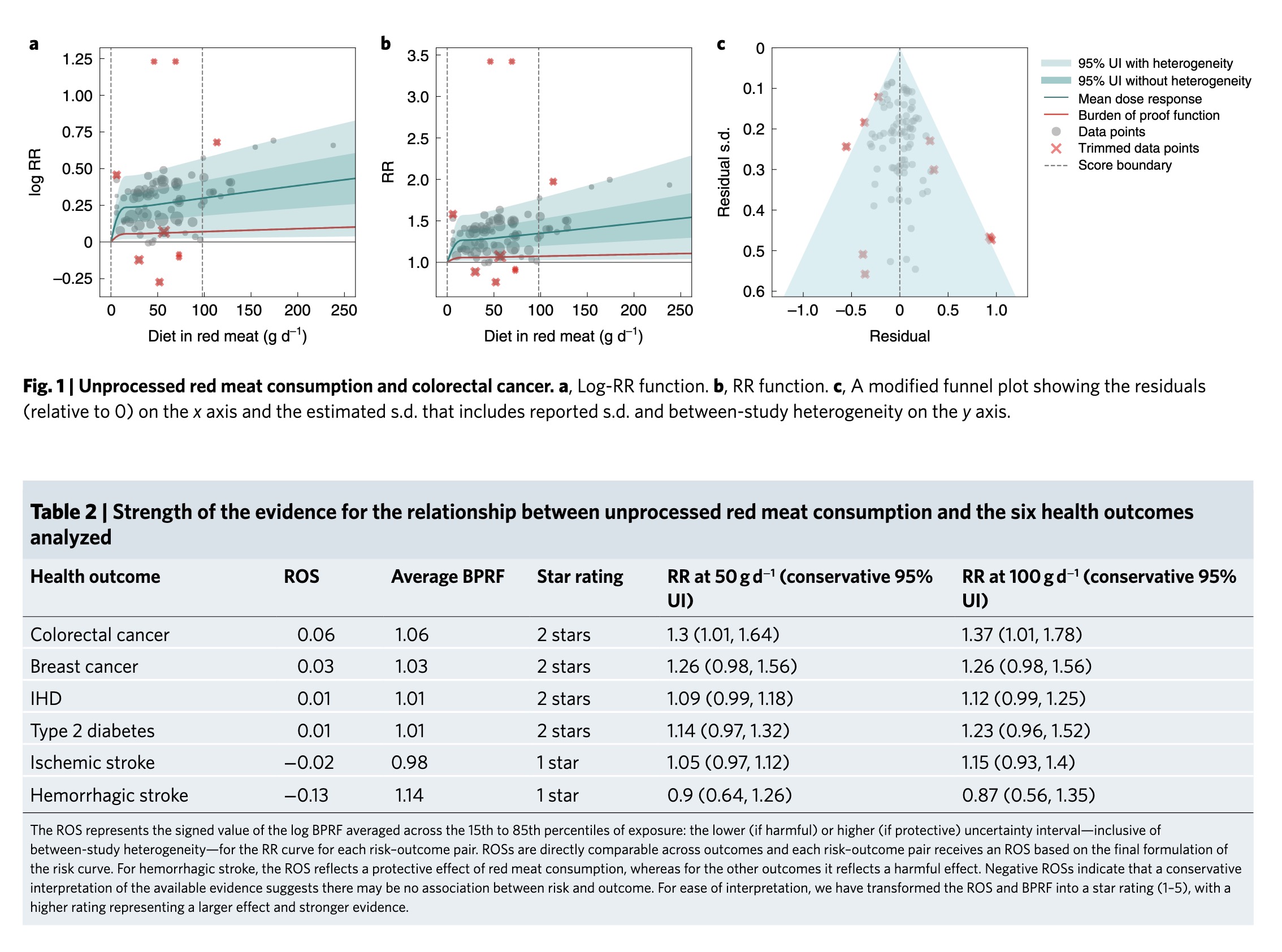this post was submitted on 22 May 2025
3 points (100.0% liked)
Friendly Carnivore
114 readers
8 users here now
Carnivore
The ultimate, zero carb, elimination diet
Meat Heals.
We are focused on health and lifestyle while trying to eat zero carb bioavailable foods.
Keep being AWESOME
Purpose
- lifestyle
- food
- Science
- problems
- Recipes
- Sustainability
- Regenerative lifestyle
Rules
- Be nice
- Stay on topic
- Don't farm rage
- Be respectful of other diets, choices, lifestyles!!!!
- No Blanket down voting - If you only come to this community to downvote its the wrong community for you
Other terms: LCHF Carnivore, Keto Carnivore, Ketogenic Carnivore, Low Carb Carnivore, Zero Carb Carnivore, Animal Based Diet, Animal Sourced Foods
Resource Post!- Papers - Books - Channels
founded 4 months ago
MODERATORS
you are viewing a single comment's thread
view the rest of the comments
view the rest of the comments

The observational weak relative risk studies can be pumped out infinitely, they do not inform on cause and effect sadly. The best data we have of prewesternized cultures eating meat heavy diets shows no incidence of cancer in these populations (first tribe nomads, inuit, etc). Humans have been eating meat for at least 2.5 million years, yet cancer has only jumped up to the epidemic it is today in the last 150 years. Something in the environment and diet has changed, absolutely. What is the causative factor? The anti-meat papers with weak relative risk tells me that its not the meat, we should be looking for a very strong signal (50% of people born today will have cancer in their lifetimes - 150 years ago basically nobody got cancer).
I could speculate, and I have my own theories, but we are looking for a significant change in the last 150 years as our culprit. Meat is not a new invention. Processed food, fructose, sugar, industrial food oils, pesticides in the food supply - all have bloomed in the last 150 years, I would hazard a guess and say these are the real harbingers of modern disease we need to focus on. Curiously these epidemiological food questionnaire papers don’t look at these factors, maybe because its hard to fill in a survey for sugar (its in all processed food).